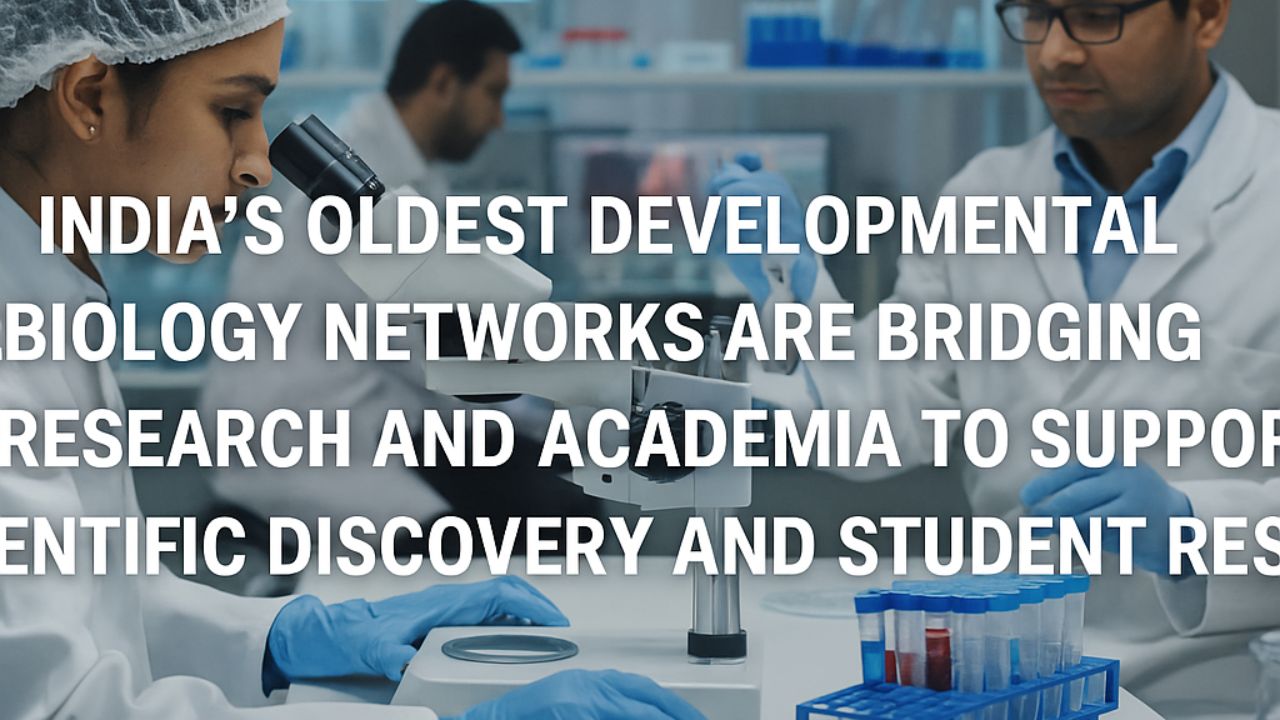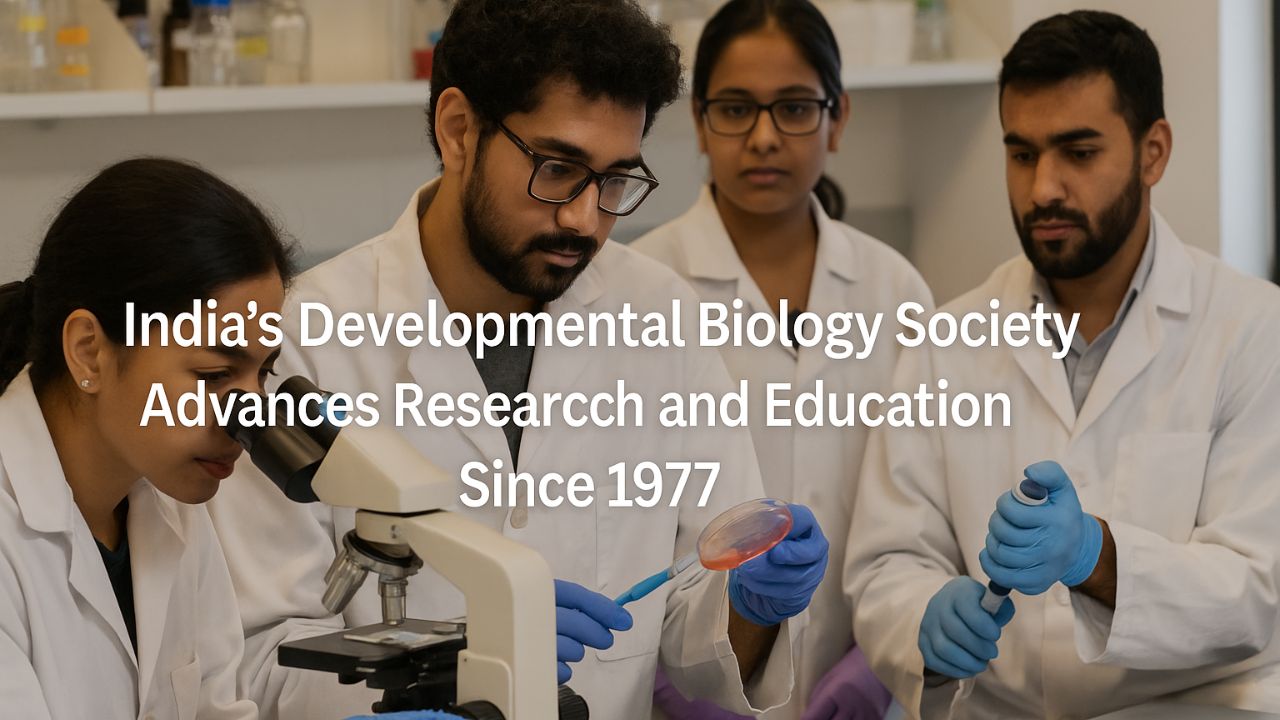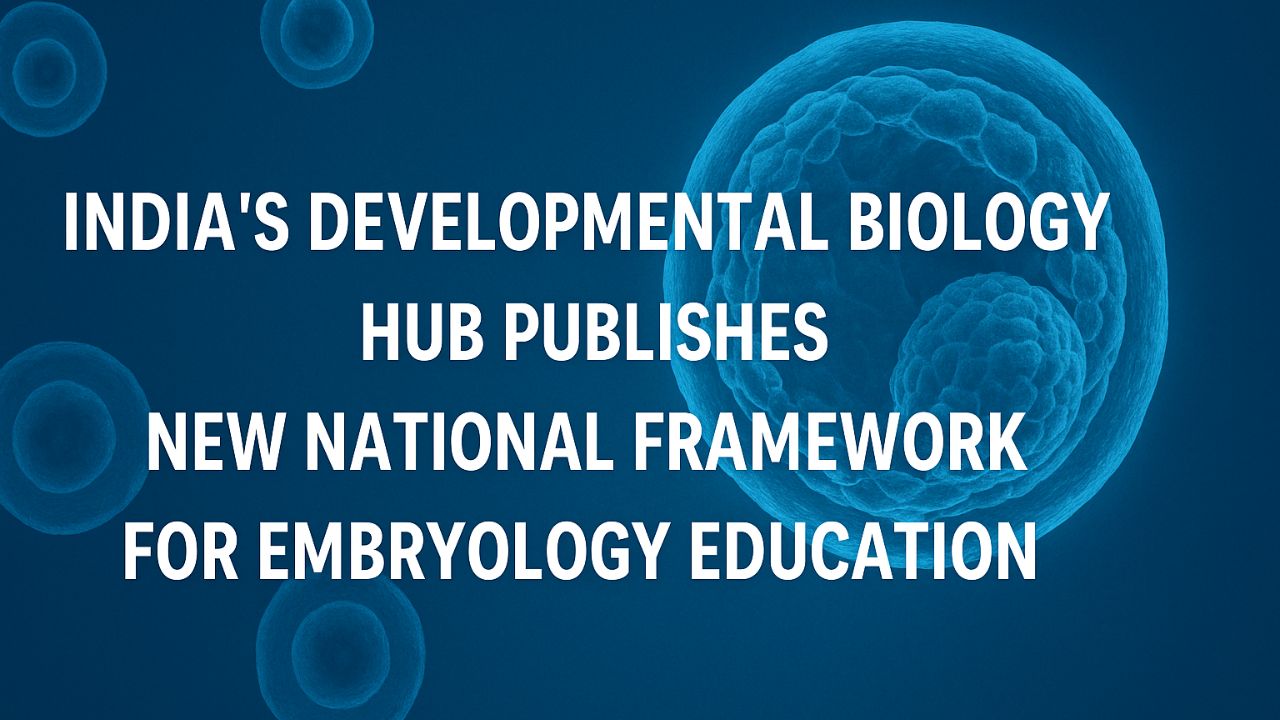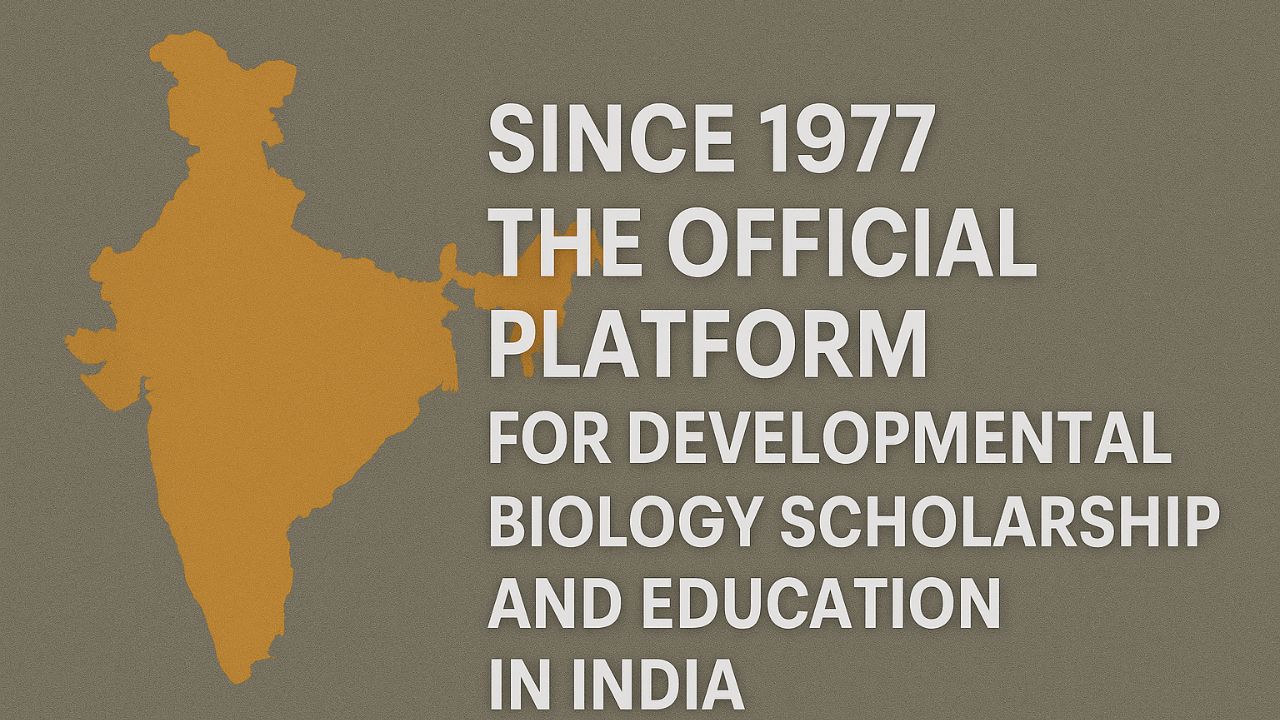Scientific Discovery and Student Research – India’s journey in biological sciences has long been grounded in a deep tradition of academic excellence and research innovation. Among its notable scientific contributions is the field of Developmental Biology — the study of how organisms grow and develop from a single cell into complex beings. Over the decades, India’s oldest developmental biology networks have played a pivotal role in this progress, connecting research labs with university classrooms, and empowering both scientists and students. These networks are not just academic collectives; they are vibrant ecosystems that integrate policy, cutting-edge research, and hands-on learning. Their efforts are shaping how biology is taught and explored in India, and they are opening new doors for young researchers to contribute to global scientific knowledge.
How India’s Developmental Biology Networks Evolved Over the Years
From the early 1960s to today, India’s contributions to developmental biology have seen exponential growth. Institutions like the Tata Institute of Fundamental Research (TIFR), Indian Institute of Science (IISc), and National Centre for Biological Sciences (NCBS) have nurtured some of the country’s finest biologists.
- The concept of building academic networks began as informal collaborations between professors and research fellows.
- In the 1980s, these collaborations formalized into workshops, joint research programs, and shared funding.
- With government backing from bodies like Department of Biotechnology (DBT) and Indian Council of Medical Research (ICMR), the networks expanded nationally.
These networks today connect central universities, IITs, and private research labs through conferences, shared lab facilities, mentorship, and online platforms.
Major Institutions Leading the Movement
Let’s take a closer look at some of the core institutions behind this scientific renaissance.
| Institution Name | Location | Key Focus Area | Notable Contribution |
|---|---|---|---|
| Indian Institute of Science (IISc) | Bangalore | Molecular Development | Organ morphogenesis, cell fate determination |
| Tata Institute of Fundamental Research | Mumbai | Genetics & Cell Biology | Embryogenesis and organ development |
| National Centre for Biological Sciences | Bangalore | Genomic Regulation | Model organism studies using Drosophila |
| Centre for Cellular and Molecular Biology | Hyderabad | Cellular Development | Zebrafish and stem cell research |
| AIIMS (All India Institute of Medical Sciences) | New Delhi | Medical Developmental Biology | Fetal medicine and congenital disorder studies |
| IISERs (Various) | Across India | Research + Undergraduate Training | Dual programs for research and learning |
| University of Hyderabad | Hyderabad | Neurodevelopment | Brain development and neuroplasticity studies |
| Jawaharlal Nehru University (JNU) | New Delhi | Evolutionary Development | Genetic variation and limb regeneration |

Student Empowerment Through Research Fellowships and Internships
These networks are student-centric at their core. Thousands of undergraduate and postgraduate students benefit from short-term projects, internships, and training workshops.
Key Student Support Programs
- KVPY (Kishore Vaigyanik Protsahan Yojana) – Encourages school and college students to pursue research careers.
- DBT-JRF & CSIR-JRF – Prestigious fellowships to fund PhD research in developmental biology.
- Summer Research Fellowship Programs (SRFP) – Organized by INSA, IAS, and NASI, helping students access top labs.
- IISER Summer Internships – Hosted across multiple IISER campuses.
These programs ensure early exposure to lab work, promoting curiosity and hands-on learning from an early stage.
National and International Collaborations Are Boosting Outcomes
India’s developmental biology networks have reached global standards by collaborating with international scientists and universities.
Recent Collaborations:
| Collaboration Partner | Country | Focus Area | Year Initiated |
|---|---|---|---|
| Max Planck Institute | Germany | Genetic regulation in embryos | 2017 |
| EMBL (European Molecular Biology Lab) | Germany | Stem cell applications in regeneration | 2020 |
| University of Tokyo | Japan | CRISPR gene-editing applications | 2019 |
| Harvard University | USA | Epigenetic modifications in development | 2016 |
| University of Cambridge | UK | Neural crest development | 2018 |
These collaborations provide access to newer tools like genome sequencing, single-cell analysis, and advanced imaging, which are now also adopted in Indian labs.
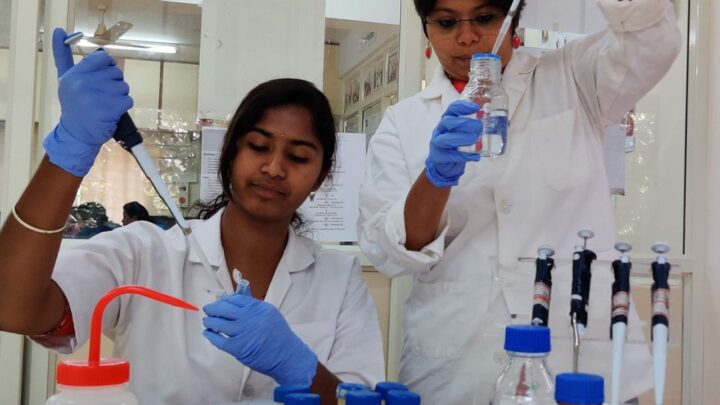
Curriculum Integration – Taking Research to the Classroom
One of the most effective outcomes of these networks is the seamless integration of current research into biology curricula.
How Curriculum is Being Enhanced:
- Incorporation of model organisms (zebrafish, drosophila) into practical training.
- Development of online modules and simulations on developmental pathways.
- Guest lectures and joint teaching modules by international experts.
- Encouragement of research-based dissertations even at the undergraduate level.
This approach allows students to not just study textbooks, but to interact with real-world biological challenges and tools.
 India’s Developmental Biology Hub Publishes New National Framework for Embryology Education
India’s Developmental Biology Hub Publishes New National Framework for Embryology Education
Challenges in Sustaining These Networks
Despite their achievements, these networks face significant hurdles.
Key Challenges:
- Funding gaps: Many smaller colleges lack resources to access national-level labs.
- Limited faculty training: Many teachers are not updated with the latest methodologies.
- Lack of lab access: Tier-2 cities and rural areas are still outside the scientific ecosystem.
- Gender imbalance: Fewer women researchers are in senior academic or leadership roles.
There’s a need for continued investment, both financial and structural, to make these networks inclusive and sustainable.
Future Roadmap for India’s Developmental Biology Networks
Going forward, the focus is on inclusivity, digitization, and expanding international exposure.
Suggested Strategies:
- Creating regional centers of excellence in Tier-2 and Tier-3 cities.
- Launching digital labs to simulate experiments for students in remote locations.
- Expanding research mentorship programs via video conferencing and hybrid fellowships.
- Promoting science communication in Indian languages to expand reach.
These steps can ensure that every interested student in India, no matter where they live, can access the latest tools and contribute to developmental biology.
FAQs
Q1. What is developmental biology and why is it important?
Developmental biology studies how organisms grow and develop. It’s essential for understanding diseases, birth defects, and even regenerative medicine.
Q2. Which institutions are best in India for developmental biology research?
Top institutions include IISc Bangalore, NCBS, TIFR, CCMB Hyderabad, and AIIMS New Delhi.
Q3. Can undergraduate students participate in developmental biology research?
Yes, through programs like KVPY, SRFP, and IISER internships, undergraduates can work on real projects.
Q4. How is research integrated into biology education?
Through curriculum changes, online tools, lab simulations, and mentorship programs involving researchers.
Q5. What are the main challenges faced by these networks?
Funding limitations, lack of infrastructure in rural areas, outdated curricula in some colleges, and gender disparities in academic leadership.
